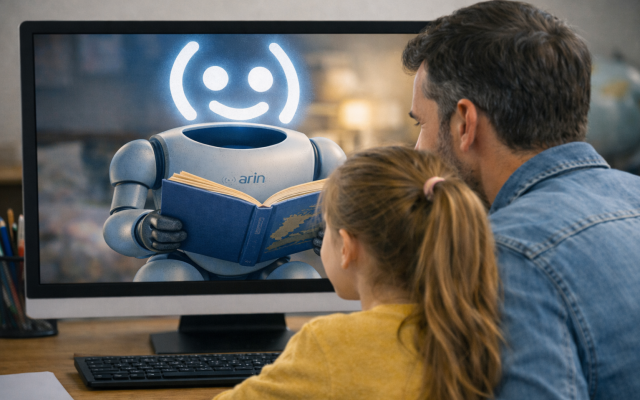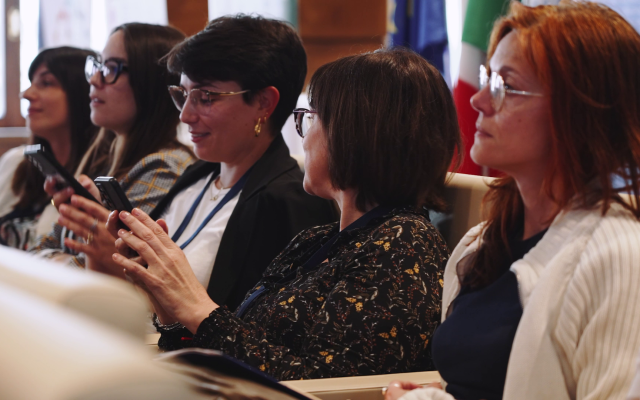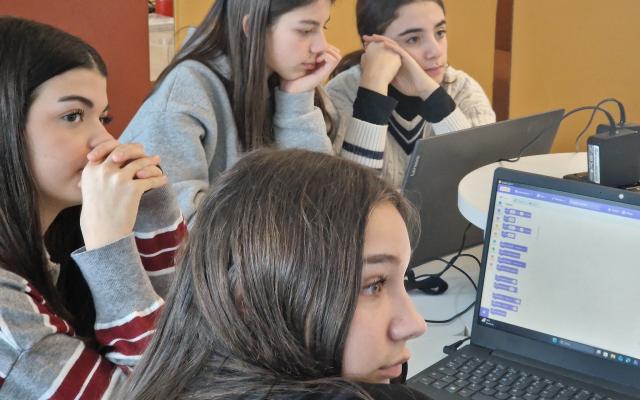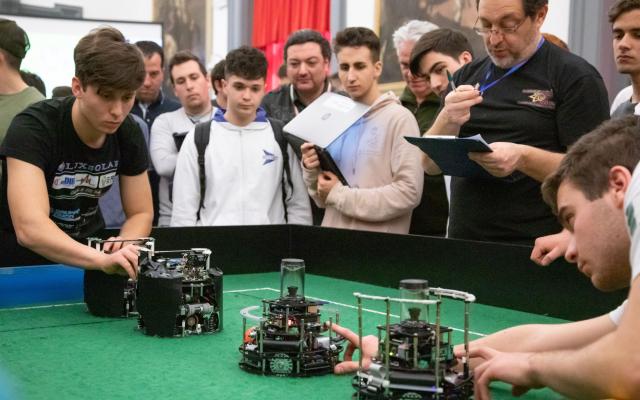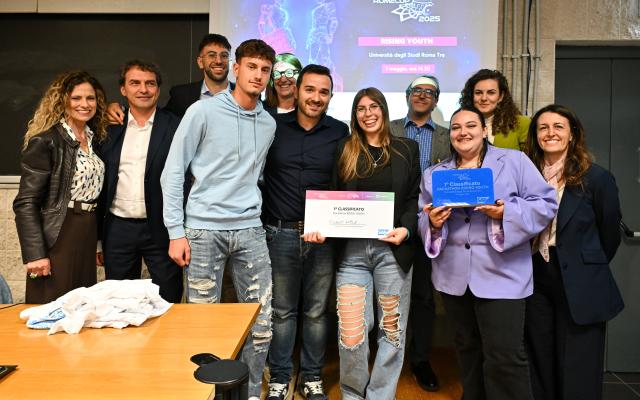Towards RomeCup 2025: the contribution of AI according to Carla Masperi, CEO of SAP Italia
Carla Masperi, CEO of SAP Italia, was among the first signatories of the Manifesto for collective action on artificial intelligence and robotics, presented during the inaugural event of RomeCup 2024. ‘It was a concrete step forward in supporting young people's awareness of the major issues of the coming years, the digital transition and the energy transition, and thus raising awareness among adult society,’ she said last year. But RomeCup 2025 also sees SAP among its most active partners. Let's see how, in an interview by Onelia Onorati.
For the fourth year, SAP has chosen RomeCup 2025 for the final Rising Youth hackathon. What motivated you to respond positively to our call for 2025?
Recognising the immense potential of young people as catalysts for positive change is fundamental. Skills and education are essential for the well-being and growth of our entire society and for the ability to face challenges, whether environmental, economic or social. Through our activities aimed at young people, carried out in collaboration with third sector organisations, SAP reaches around 5,000 young people in Italy every year. The Rising Youth project and the RomeCup have long been an essential part of our calendar, giving hundreds of young people the opportunity to take on a real challenge and demonstrate their skills and innovative spirit.
Initiatives such as Rising Youth have forged virtuous alliances between the third sector and tech companies such as SAP to help students acquire and strengthen the digital and transferable skills they need to face the challenges and constant changes of the labour market. What is the added value that companies bring to these alliances when they commit to supporting and inspiring young people?
According to Manpower Group's ‘2025 Global Talent Shortage’ analysis, 78% of companies in Italy would like to hire new staff but cannot find candidates with the necessary skills: this is the highest figure ever recorded for our country. According to the report, the most difficult skills to find are IT skills. At the same time, the unemployment rate, particularly among young people, stood at 17.7% in October 2024. These figures reveal a profound mismatch between the skills possessed by job seekers and those required by companies. To address this shortage, a joint effort is needed from all stakeholders in education, institutions, the third sector and companies, for the sake of the future of young people and our country. In a rapidly evolving technological landscape, the involvement of businesses is essential to provide young people with ‘real-time’ skills that take into account the latest innovations, taught by professionals who use them on a daily basis, or those that will arrive tomorrow.
This year's RomeCup 2025 event has an extra component: it encourages young people to use communication to promote their prototypes. How can we leverage communication in general, and social media in particular, to make young people increasingly entrepreneurs of themselves and less passive consumers?
In our society, communication is an essential element for personal and professional development, and all young people, consciously or unconsciously, communicate information about themselves through social networks to their friends and acquaintances, but also to anyone in the world, including potential employers or potential customers. In order for them to communicate effectively without exposing themselves to danger, they need to understand both the possible effects of the media they use and the dynamics underlying communication, starting with the ability to express ideas, emotions and visions in a clear, respectful and engaging manner. For social media to be a tool that empowers young people to become entrepreneurs of themselves, they need to understand that online communication is a continuous investment in their future.
In our mutual collaboration, we have often focused on the critical, conscious and inclusive use of technology, as promoted by the Manifesto. Can you tell us about your approach to this important new challenge for humanity, represented in particular by artificial intelligence?
In this area, our vision is to provide the first true intelligence system to companies to improve the way they run their businesses and help them grow and innovate sustainably.
The AI we develop for businesses is based on three fundamental principles. First, it must be relevant, meaning it must be available from day one and integrated into the most critical processes. Customers can rely on their SAP systems to be future-proof with AI that understands the context of their business and the environment in which their organisation operates. Second, our AI is developed to be reliable, drawing on our decades of experience managing extensive data and core content. Based on this unique information asset and deep knowledge of business processes, we are able to deliver the most reliable AI to customers. Finally, AI must be responsible, meaning it must be developed with the highest levels of security, privacy, compliance and ethics in mind. Our customers trust us; our solutions manage their most critical data and processes. We know how to build and run powerful, reliable solutions, including AI that touches their vital data and systems.

